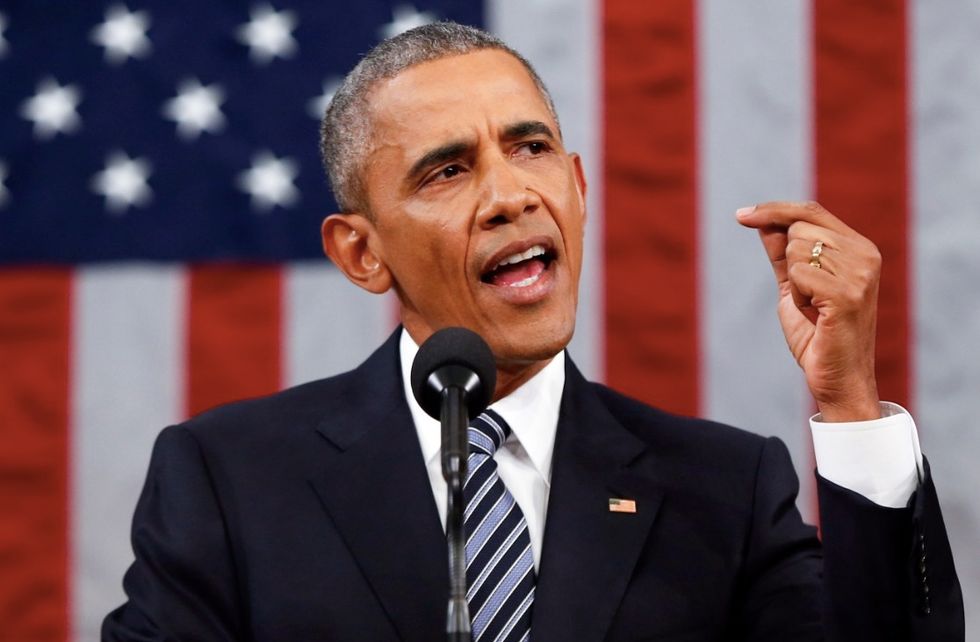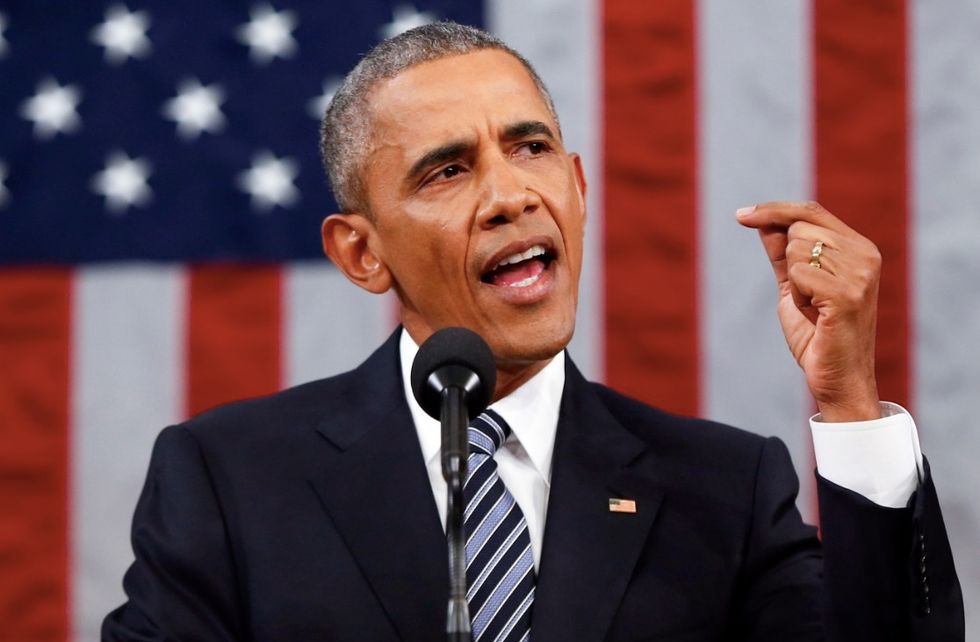
President Barack Obama delivers his State of the Union address before a joint session of Congress on Capitol Hill in Washington, Tuesday, Jan. 12, 2016. (AP Photo/Evan Vucci, Pool)

WASHINGTON (AP) -- The Obama administration is easing new visa requirements for certain European travelers who have visited Iran, Iraq, Syria or Sudan in the last five years, a move that quickly angered some in Congress who pushed for new travel restrictions.
The announcement by the Homeland Security and State departments comes as the administration puts new limits on who can use the visa-free travel program under a law Congress passed in December intended to block Europeans who have fought for the Islamic State group and are likely to commit jihadi violence from entering the United States.
Citizens of 38 countries, mostly in Europe, are generally allowed to travel to the United States without applying for a visa. But they still have to submit biographical information to the Electronic System for Travel Authorization, or ESTA.

The administration said Thursday that people who traveled to those countries as journalists, for official work with humanitarian agencies or on behalf of international organizations, regional organizations and provincial or local governments may still be eligible to visit the United States without first obtaining a visa. People who have traveled to Iran since July 14, 2015, or Iraq for "legitimate business-related purposes" will also be allowed to apply to come to the United States under the visa waiver program.
The Homeland Security Department said waivers for some ESTA applicants will be granted on a "case-by-case" basis. Those travelers who are denied visa-free travel can still apply for visa through a U.S. embassy in their home country.
Republican lawmakers objected to the exemptions on Thursday.
"The Obama administration is blatantly breaking the law, a law the president himself signed," said House Homeland Security Committee Chairman Michael McCaul. "This is not a difference of opinion over statutory interpretation, it is a clear contradiction of the law and the agreement we reached with the White House. President Obama is again putting his relationship with Iran's supreme leader over the security of Americans."
The Texas Republican said the exemptions announced by the administration were already rejected by Congress. He added that he and his colleagues "will respond and are reviewing our options."
House Judiciary Committee Chairman Bob Goodlatte said the move "needlessly compromises our national security and the safety of the American people."
Republican aides said the bipartisan bill signed by President Barack Obama in December wasn't intended to provide such wide discretion to the executive branch and such exemptions were debated and rejected.
The new limits only affect a minority of Europeans, but it has prompted great concern in countries whose citizens generally enjoy visa-free travel to the United States. And it has drawn Iranian charges that the U.S. is violating last summer's nuclear accord by penalizing legitimate business travel to the Islamic Republic.
Iraq and Syria were targeted specifically because the Islamic State has seized significant territory in each country for its would-be caliphate. Iran and Sudan, like Syria, are designated by the U.S. as state sponsors of terrorism.
The administration is not yet making changes to limits on visa-free travel for dual nationals from any of the four countries.